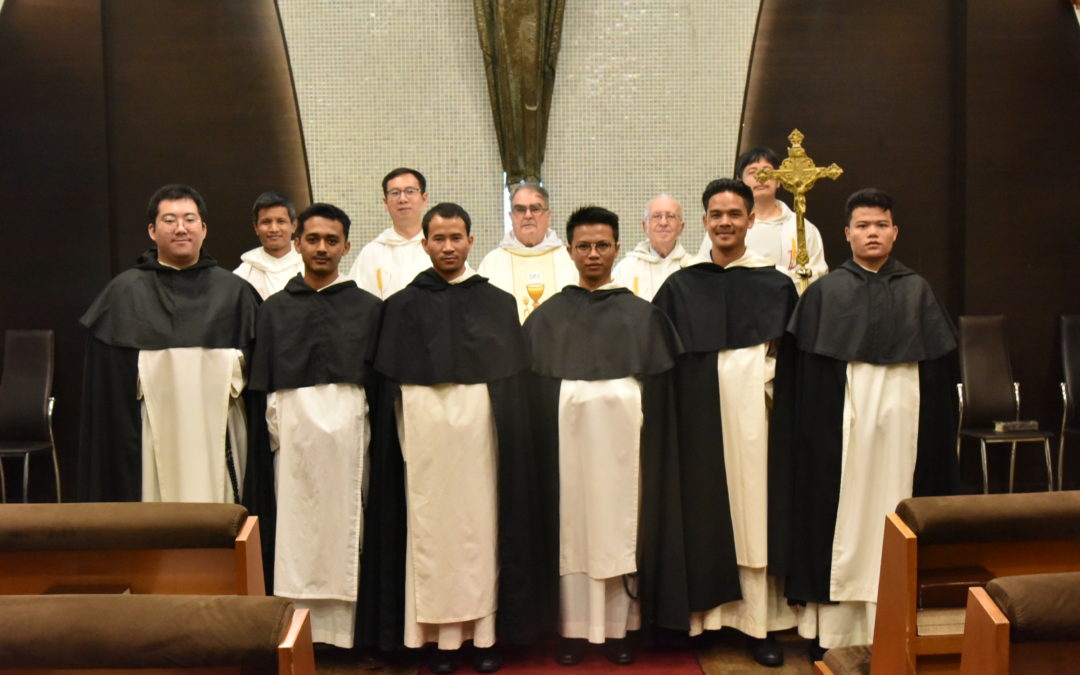
A yearly recurrent ephemerides at this community of St Dominic’s Priory in Macau is the religious profession renewal of some of the student brothers. This year the event took place on 21 June. On that day, seventeen brothers, wearing their black and white Dominican habit, renewed their promise of obedience to God, to Blessed Mary, to Blessed Dominic and, through the local superior, to Fr Gerard Francisco Timoner, the current Master of the Order of Preachers. They likewise pledged fidelity “to go to the foreign Mission whereever assigned by their superiors” as it is customary in the Province of Our Lady of the Rosary. It was one step forward for them towards their solemn profession.
By circumstance, this year the 17 brothers found themselves in different countries on that very day of 21 June: Bro. Innocent Han-Zaw-Htun was in Yangon; Bro. Reynaldo Chang, in Hong Kong, Bro. Benedito de Jesus, Cesar Lino de Sousa, Agostinho Mendonça, Andre Pereira, Joao Baptista Pereira, Gaspar de Jesus, Agostinho Maia dos Santos, Natalino da Costa, in Timor Leste; Bro. Mark Noh Seung, in Korea; and the rest, Bro. Gabriel Khun Ri, Luigi Yu Reh, Aloysius Thurein-Htun, Francisco Zin Ko Lin, Francis Kim Eung Woo and Joseph Hung Naing Ling remained in Macau. In this way, the joyful event was witnessed by a larger number of brothers, some of them young aspirants and novices, in the Missions of the Province. As seen in the pictures they shared with us after the event, their faces reflected joy.
In Macau, at St Dominic’s Priory, the ceremony of the renewal took place in the evening of that day during the Vespers and the conventual Mass, presided over by the Prior of the community, Fr Javier Gonzales, and concelebrated by Frs. Fausto, Edmond Eh, Paul Fan and Lawrence Reh, and participated by the rest of the student brothers. The celebration ended with the singing of the Salve Regina and the O Spem Miram to our Father Dominic.
Our warmest congratulations to all the brothers for this act of generosity towards God. Congratulations also to our Korean Brother Mannes John Kim Su-Myeong, a former student in Macau, who on this same date made his solemn profession in his home country, South Korea. Our prayers for all of them, with the wish that the Lord who started this good work may take it to fulfillment.
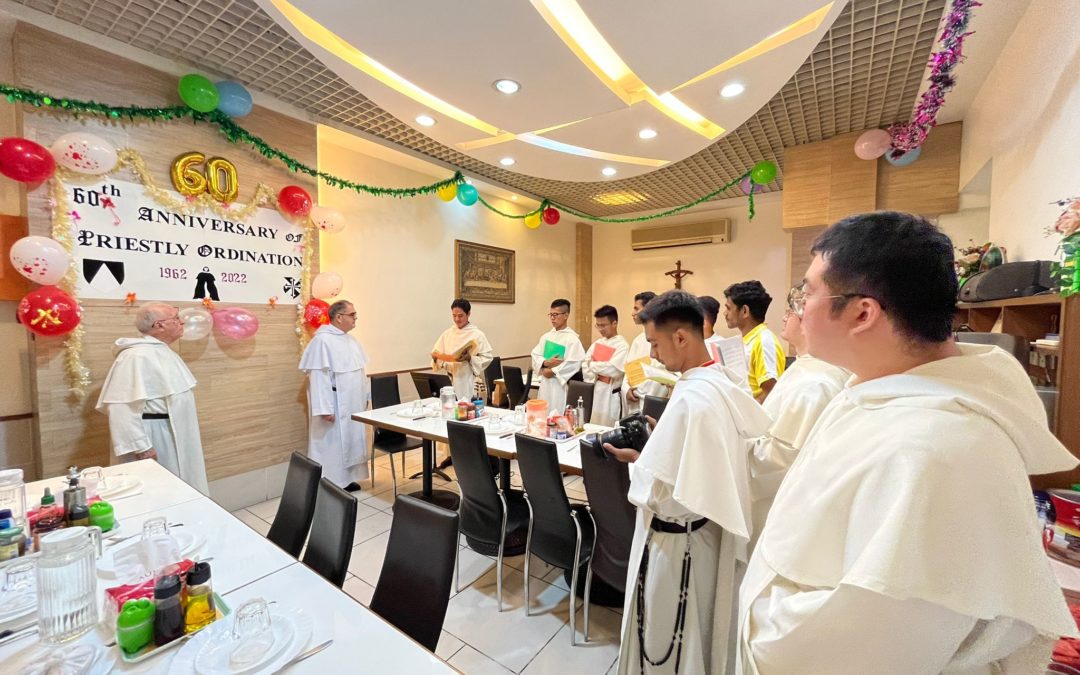
June 14, 2022 marked the 60th anniversary of the priestly ordination of fr Fausto. The community Mass was presided by fr Fausto himself in commemoration of his ordination. In his preaching, he recalled different experiences during his vocation and used them to teach the younger brothers. What stood out as he preached was how important prayer and perseverance is to his vocation which has led him to this day. These are simple lessons but as he recalled to us, they are to be practiced for an entire lifetime.
After the Mass, he brothers sang a song for him with fr Luigi giving some words of thanks on behalf of the community. Fr Fausto thanked everyone for their words and effort and he also commented on how he preferred to celebrate an important milestone with the brothers in the community. Finally, there was a simple dinner with the dining room decorated by the brothers.
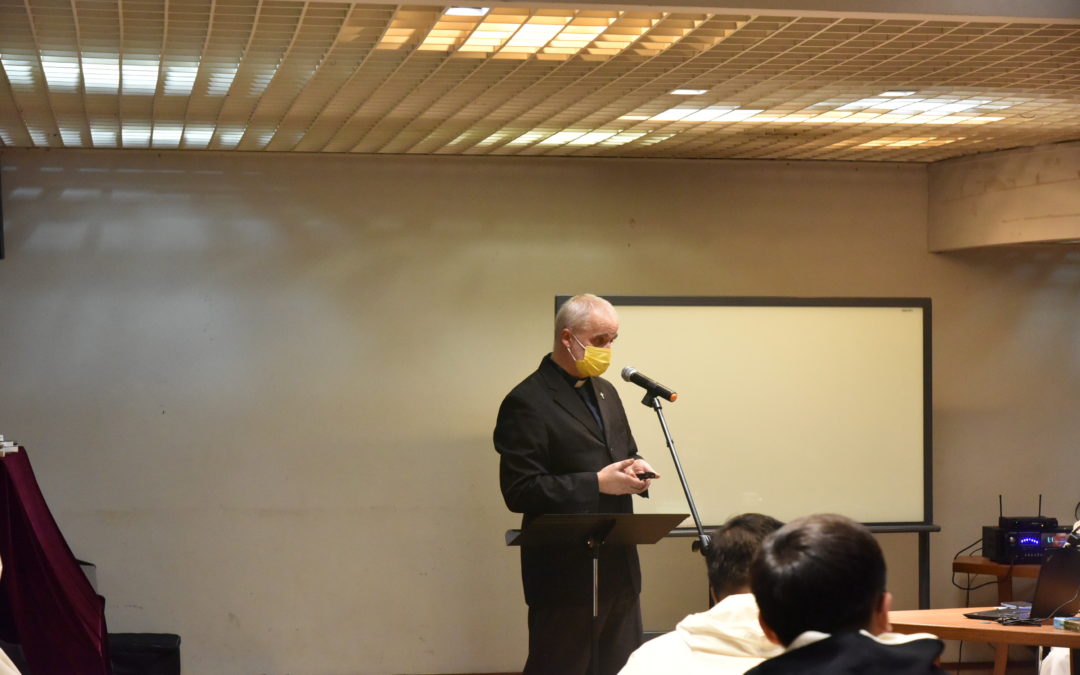
In honour of St Thomas Aquinas, Fr Franz Gassner, SVD, the Dean of the Faculty of Religious Studies and Philosophy of the University of St Joseph, delivered a lecture entitled Quinque Viae Ethicae Oecologiae: Five Ways to Care for Our Common Home – Ecological Ethics at St Dominic’s Convent in Macao.
The lecture outlined five different ways to explain how the relationship between humanity and the rest of creation should be using St Thomas’ thought. It gives us an opportunity to rethink how we should treat creation especially with the different environmental issues in our world today.
The Dominican Family in Macao, composed of the friars, sisters, and lay Dominicans, was in attendance. Some friars outside Macao also followed it online. After the lecture, Holy Mass was celebrated for the Feast of St Thomas Aquinas and lunch followed afterwards. It was a great day not only because it was the feast of our brother St Thomas but also that the whole Dominican Family was with us throughout.
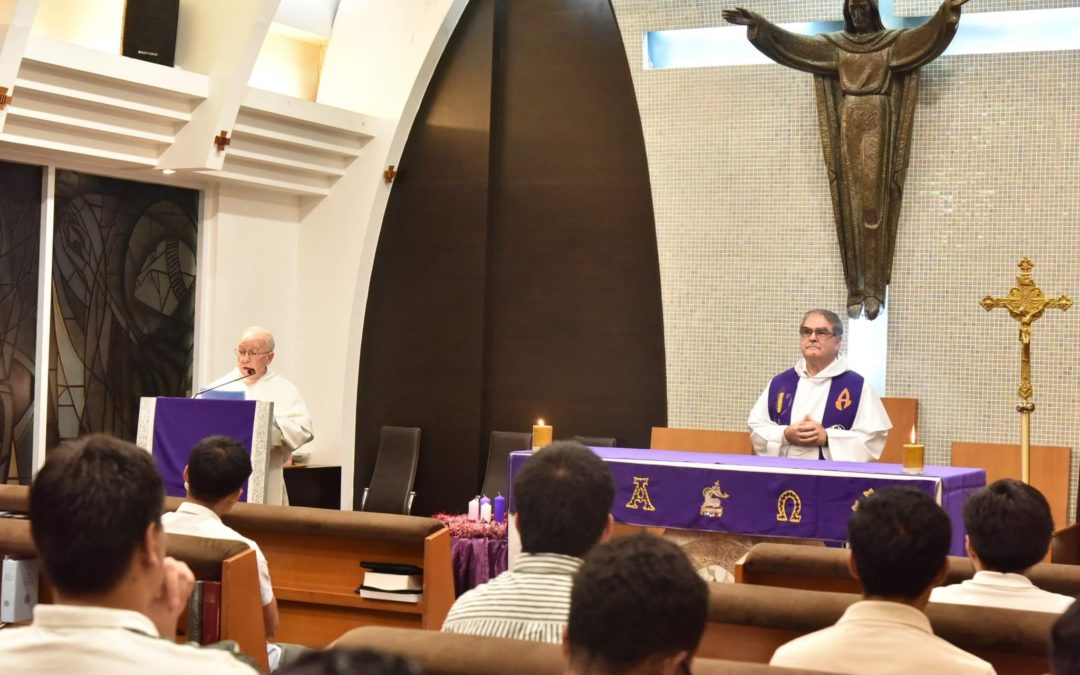
On 24 November 2021 Fr Javier Gonzalez accepted his office as Prior of St Dominic’s Priory in Macao. Three days later, he took the office during the community prayer of Vespers. It was a simple, meaningful ceremony, which consisted in the profession of faith and the oath of fidelity. Afterwards, Fr Javier addressed a few words to the community. He first explained that the public profession of faith and the oath taking indicated that he was accepting the office of Prior in the name of the Church. Then he welcomed the newly arrived student brothers from Hong Kong, inviting them to feel at home. He further thanked the former Prior, Fr Paul Fan, for his services to the community during the previous years and wished him success now in his new position as Master of Students. Finally, Fr Javier thanked the members of the community for their trust and evoked those words of St Augustine saying that the superior should strive to be loved by the brothers rather than feared, ever mindful that he must give an account of them to God. In closing, as the moment marked the very beginning of Advent, he encouraged everyone to let the new liturgical season be also the beginning of a new life, while he placed himself at the service of the community.
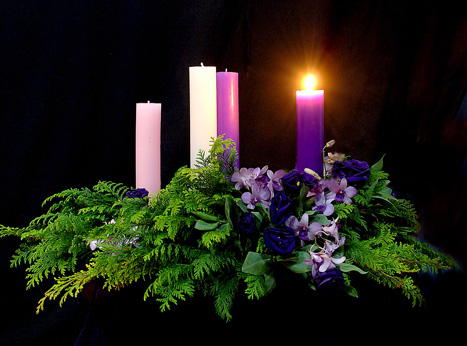
What is Advent?
The word Advent is derived from the Latin word advenire, meaning ‘to come’, referring to the coming of Christ.
In the Catholic Church, Advent refers to the four weeks preceding Christmas, a time of liturgical celebration that highlights the birth of Jesus Christ and, according to biblical prophecy, the Day of Judgment on which he returns.
Advent is a time of spiritual purification, as well as preparing for Jesus’ arrival. Purple is the color used in the vestments during celebrations, a symbol of the beginning of a new liturgical year, which occurs on the first Sunday of Advent.
Advent is a time for penance and spiritual cleansing, but for Christians, it is also a time of joy and rejoicing. This is because it nurtures the hope of the Messiah’s return through the celebration of his birth.
Advent represents Mary’s waiting for the birth of Jesus. This is announced by the Angel Gabriel in a vision in which he told her she was about to conceive the Son of God.
Advent always begins on the Sunday closest to the 30th of November and ends on the 24th of December, Christmas Eve.
The wreaths of candles has symbolic meanings tied to the Christmas season, and each of them has the meaning that the circle of wreath signifies the eternity of God with no beginning or end. And even each of the individual evergreen that makes up the wreath has the meaning that can be represented to our faith. We don’t mention each of them but the most important is that the wreath as a whole is meant to remind us of both immortality of our soul and God’s promises of everlasting life through our Lord Jesus Christ.
The four candles represent four weeks of Advent, and each candle represents each Sunday. Three candles are purple, the liturgical calendar color that represents the time of prayer, penance, and sacrifice.
The first purple candle symbolizes hope, Sometimes it is called the “Prophecy Candle” in memory of the prophets, especially Isaiah, who prophesied the birth of Christ. It symbolizes the expectation for the coming Messiah.
The second purple candle symbolizes faith. The candle is called the “Bethlehem Candle” as it symbolizes Mary and Joseph’s journey to Bethlehem.
The third candle is pink and symbolizes joy. It is the “Shepherd’s Candle”, and it is pink because rose is the liturgical color for joy. The third Sunday of Advent is Gaudete Sunday and is meant to remind us of the joy that the world experienced at the birth of Jesus, as well as the joy that the faithful have reached the midpoint of Advent.
The four and last purple candle, lighted on the four Sunday of Advent, symbolizes peace. It is the “Angel Candle,” as the angel’s message reminds us “Peace on earth, to the people of goodwill” (Luke 2:14 KJV). It is the final week of prayer, penance as we wait for the arrival of our Saviour.
In modern traditions, the Advent wreath we see does not include a white candle. But the white candle is in place in the middle of the wreath and on Christmas Eve. This candle is named “Christ candle” and it represents the life of Christ. The color white symbolizes purity because Christ is our sinless, pure Saviour.





